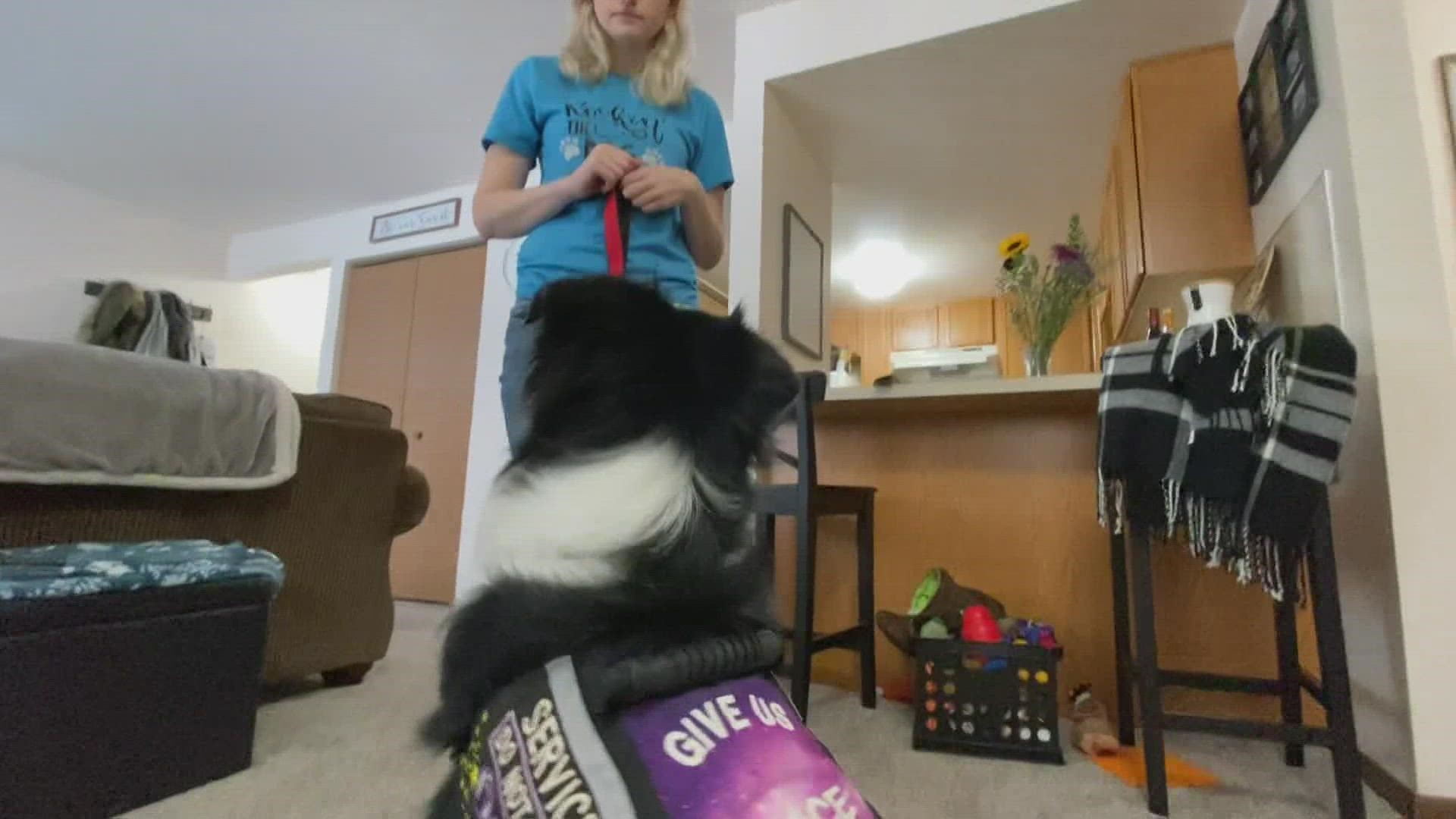KENT COUNTY, Mich. — Dogs are known as "man's best friend" but in some cases, they can also be essential to someone with a disability. They can also provide comfort and support, and each description comes with its own name, from service, to therapy, and even emotional support animals.
So when it comes to assistance animals, there are a lot of misconceptions and questions. Luckily, there are local experts right here in West Michigan that can help give some answers.
"I'm getting a lot more people who are interested in service work or therapy work," said Kaitlyn Shamery, who owns and operates Kaitlyn's Dog Training out of West Michigan. "People are finding out what all of the things dogs are capable of being trained to do."
Ally Fuhs is also a local dog trainer with her business, Captivated Canine.
"We've really seen a lot of people start to explore what service animals can do for them and the different tasks that animals can be trained to perform," Fuhs said.
For a service dog, that task would be something specific to their handler to help them live a better daily life. It could be anything from helping treat diabetes, PTSD and even help people with autism.
"There are so many other disabilities out there, and so many invisible disabilities that could be benefitted by a service animal," Fuhs said. "We really like to equate them to medical equipment, because they are essentially a wheelchair or oxygen tank for that person."
Fuhs said that along with service pet training, she's seen a huge increase in people wanting therapy dog training. So what's the difference?
"Service animals are really trained to do work for just one person with a disability, and therapy dogs are there to provide comfort and support for people in wide variety of situations," she said.
Therapy dogs are often used in schools or nursing homes to provide that comfort or companionship.
Shamery said she's seen this increase in interest too, and wants to make sure people understand what all of it means.
"I'm really excited about how many people are interested in therapy and service work, but we have to keep in mind that there is so much training involved," Shamery said.
So what about emotional support animals? Where do they fit in?
"Emotional support animals are animals that are there to provide comfort, but they do not have any tasks or obedience requirements and they can't be in public," said Fuhs. "They also have to be prescribed by a medical professional that are familiar with their case."
Legally, service animals do not have to have any kind of certification or registration, and they are not required to wear a vest. And when it comes to emotional support animals, both Fuhs and Shamery said that online businesses to register are often just money-grabbing scams.
"Unfortunately that is ultimately bringing untrained dogs into public spaces that can threaten people with trained service animals," Fuhs said.
"Service dogs are the only ones that are able to get public access," added Shamery. "A lot of people think that therapy dogs or emotional support dogs get access anywhere and that's simply not true."
Shamery added that if you are looking for any kind of these assistance animals, it's best to contact a dog trainer or professional who can help you find the best fit.
"A lot of us are really happy to provide advice and help you find what you're looking for based on your family," Shamery said.
You can learn more about the difference between assistance animals by clicking here.
Related video:
►Make it easy to keep up to date with more stories like this. Download the 13 ON YOUR SIDE app now.
Have a news tip? Email news@13onyourside.com, visit our Facebook page or Twitter. Subscribe to our YouTube channel.

